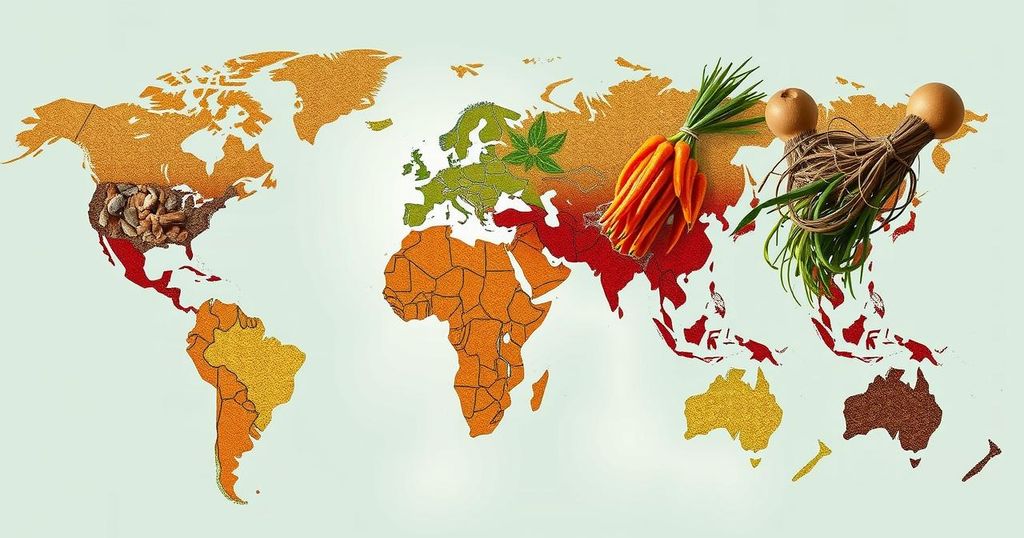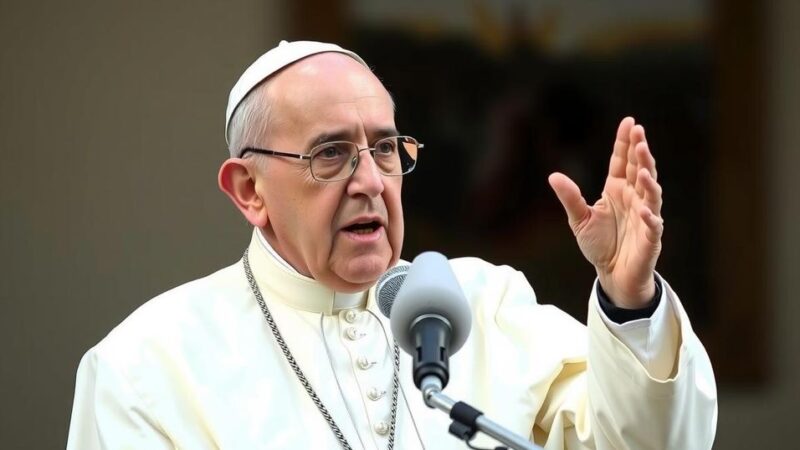Over 150 Nobel and World Food Prize laureates urged urgent action to combat global hunger, highlighting the need for increased agricultural research funding and innovative food distribution methods. The signatories warned that without transformative efforts, food insecurity will worsen due to climate change and population growth, calling for initiatives to improve crop production and distribution strategies.
In a significant call to action, over 150 laureates of the Nobel and World Food Prizes have signed an open letter demanding urgent intervention to avert a looming global hunger crisis. Addressing the alarming statistics indicating that approximately 700 million individuals currently face food insecurity and extreme poverty, they emphasized the necessity for a transformational approach to enhance food production and distribution. The signatories stressed the importance of increased funding for agricultural research and innovative distribution strategies to stave off the worsening effects of climate change and population growth.
The letter highlights the challenges posed by climate change, which threatens to reduce crop productivity in essential staples as the global population is projected to increase by 1.5 billion by 2050. With dire predictions regarding declines in corn production in Africa and worsening soil and water conditions, the authors warned that the current trajectory is insufficient to meet future food demands.
The letter originated from discussions among food accessibility experts and encapsulated an optimistic yet urgent perspective, stressing that with proper action, catastrophic hunger crises could be prevented. It proposed key strategies including advancements in photosynthesis, reduced dependency on chemical fertilizers, and improved preservation methods for fruits and vegetables.
Cynthia Rosenzweig, a recipient of the World Food Prize and a climate research scientist at NASA, noted the encouraging progress in agricultural research that could lead to viable solutions if bolstered by increased investment and commitment from global leaders. Rosenzweig remarked, “It’s not that we have to dream up new solutions. The solutions are very much being tested, but in order to actually take them from the lab out into the agricultural regions of the world, we really do need the moonshot approach.”
The alarming increase in global hunger is exacerbated by climate change, population growth, and socio-economic conflicts. The recent letter from Nobel and World Food Prize laureates outlines a critical need for heightened research and the implementation of new food distribution strategies. Given that the world is not adequately prepared to meet future food demands, the call for immediate and effective action underscores the urgency of addressing food insecurity on a global scale.
The collective call from over 150 Nobel and World Food Prize laureates underscores an urgent need to enhance food production and distribution to avert a predicted global hunger crisis. By investing in innovative agricultural research and implementing transformational strategies, it is possible to address the critical challenges posed by climate change and rising populations. A collaborative ‘moonshot’ effort is essential to ensure future food security and mitigate the rapid decline in global agricultural productivity.
Original Source: al24news.com







